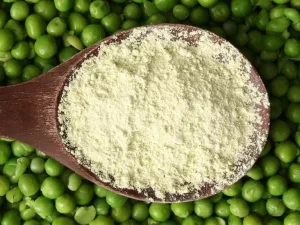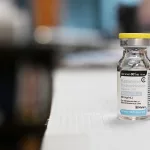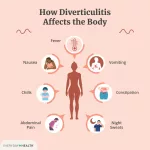Green tea includes active compounds that might help raise your metabolism and aid the breakdown of fat cells. Still, most weight-loss studies focus on green tea extracts or supplements rather than the brewed drink itself.
This beverage is widely enjoyed and packed with antioxidants and various phytochemicals.

For centuries, green tea has been consumed for its potential health benefits, including improved digestion and heightened alertness. Some people also believe green tea can support weight loss and enhance fat burning.
That said, research on green tea’s role in weight loss has produced mixed results.
This article reviews the current evidence on green tea and body-weight outcomes.
Contains components that may support fat loss
Tea leaves are rich in plant compounds that could help prevent chronic diseases like diabetes and obesity by combating inflammation and oxidative damage and by lowering cholesterol and insulin levels.
In particular, green tea provides catechins and caffeine. These substances may aid weight loss by increasing daily calorie burn (energy expenditure) and enhancing fat oxidation, metabolic activity, and thermogenesis.
Catechins belong to the flavonoid family, a class of plant polyphenols.
The most prominent catechin in green tea is epigallocatechin gallate (EGCG), making up to 80% of the catechin content in green tea.
Some studies indicate that EGCG may reduce obesity-related markers, including:
- overall body weight
- percentage of body fat
- waist-to-hip ratio
- waist size
- body mass index (BMI)
Caffeine is a known stimulant that has also been shown to support fat burning.
Nevertheless, it’s worth noting that not every study finds weight-loss benefits from EGCG, caffeine, or green tea.
How might green tea promote fat burning?
Body fat is stored in cells as triglycerides. To use stored fat for energy, these triglycerides must be broken down into fatty acids and glycerol and released into the bloodstream — a process called lipolysis.
During physical activity, hormones such as epinephrine and glucagon are released to encourage fat oxidation and the mobilization of fatty acids, which are then used as fuel by the body.
Some research suggests green tea catechins, particularly EGCG, may enhance fat oxidation and lipolysis by amplifying the action of fat-mobilizing hormones like catecholamines.
EGCG may also inhibit an enzyme that degrades norepinephrine. Inhibiting this enzyme raises norepinephrine levels, which can promote increased fat breakdown.
Caffeine may further enhance fat metabolism, particularly when consumed at rest rather than during exercise.
Overall, green tea might help fat cells release more fatty acids into the bloodstream, where tissues like muscles can use them for energy.
Does green tea boost fat burning during exercise?
Green tea is commonly included in commercial weight-loss and fat-burning formulations.
However, evidence on whether green tea enhances exercise-induced fat burning is inconsistent.
For example, a small study found that consuming Matcha green tea before physical activity increased the amount of fat oxidized during exercise.
A 2024 review also reported that using green tea supplements alongside regular exercise may assist with weight management, though it found no effect of supplementation on lipid measures like cholesterol and triglycerides.
Additionally, a 2017 review noted that some trials observed benefits of EGCG on energy expenditure and fat oxidation when combined with exercise, while other trials did not find meaningful effects.
Further research is required to clarify how green tea influences fat burning both during exercise and at rest.
May raise resting metabolic rate
Your body continuously uses energy, even while you’re sleeping or sitting still.
A 2021 review reported that some trials found green tea extract could increase resting metabolic rate (RMR), potentially helping you burn more calories at rest by elevating total energy expenditure.
That said, the reviewers emphasized that not all studies observed positive effects.
More investigation is needed to determine how green tea influences RMR.
Can green tea reduce your calorie intake?
Some propose that drinking green tea might lower calorie consumption, which could help maintain a calorie deficit and support weight loss.
However, studies disagree on whether green tea affects appetite.
For example, a 2023 review found that green tea extract supplementation did not significantly alter the appetite-regulating hormones leptin and ghrelin.
However, that review did find that green tea extract reduced body fat percentage, BMI, and malondialdehyde, a marker of oxidative stress.
A 2022 study with 21 participants showed that drinking green tea before breakfast raised energy expenditure.
Yet, participants who consumed green tea felt hungrier, suggesting the increase in energy expenditure might not be linked to greater satiety or lower calorie intake.
Green tea may reduce visceral fat
In terms of absolute weight loss, green tea’s effects are generally modest.
Still, some human and animal studies have shown that green tea extracts and catechins may help decrease visceral fat, the fat stored around internal organs.
Excess visceral fat is linked to conditions like obesity, type 2 diabetes, and cardiovascular disease.
Frequently asked questions
How much green tea should I drink daily to lose weight?
A study found that taking at least 500 milligrams (mg) of green tea extract per day for 12 weeks helped lower body weight and BMI. The authors suggested green tea may support weight loss when combined with a balanced diet and regular exercise.
Can green tea help you lose weight in 2 weeks?
Any weight-loss effects from drinking green tea over just 2 weeks are likely minimal.
Most trials assessing green tea’s impact on weight ran for at least 6 weeks, and not all reported benefits.
Which type of green tea is best for weight loss?
There is limited research directly comparing different green tea varieties for weight loss. Both brewed green tea and standardized extracts may offer some benefits.
The bottom line
Green tea is a long-used beverage celebrated for potential anti-inflammatory, antioxidant, and anticancer properties.
Some evidence indicates that compounds in green tea may help with weight loss by enhancing fat oxidation and elevating metabolic rate.
However, a number of studies have not demonstrated significant weight-loss effects from green tea.
If you’re aiming to lose weight, consider consulting a healthcare professional who can tailor a nutrition and exercise plan that suits your needs. For broader context on beverages and weight management, you might also find our article on green coffee useful, and for general weight-loss guidance see weight loss an obesity doctor shares insights and support.

























Leave a Reply
You must be logged in to post a comment.